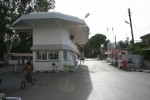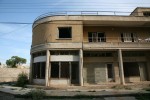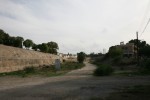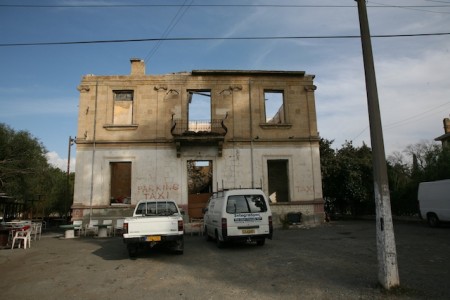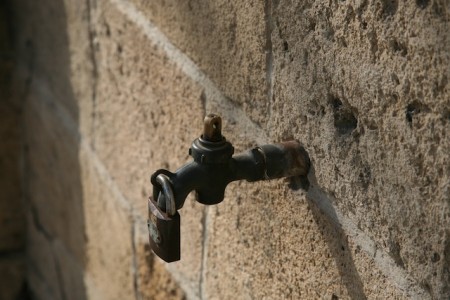 The Liminal Memory Zones project is an international research project, conducted by a large group of academics, artists and architects from across Europe, dealing with the representation and memory of conflict zones. The group met for an intensive research meeting during November 2008 in the Universtity of Cyprus, in Nicosia, for the first Liminal Zones international conference. For images from this conference press here.
The Liminal Memory Zones project is an international research project, conducted by a large group of academics, artists and architects from across Europe, dealing with the representation and memory of conflict zones. The group met for an intensive research meeting during November 2008 in the Universtity of Cyprus, in Nicosia, for the first Liminal Zones international conference. For images from this conference press here.
The group project website is:
A conference organized by Socrates Stratis & Angela Melitopoulos
Any attempt to understand the rapid transformation of territories in the 21st century reveals shifting landscapes and moving boundaries, thus a continuous struggle for their redefinition through conflicts and exclusions. Different conditions of mobility and migration encouraged by the so-called ‘globalised world’ inscribe in material environments social and psychological borders. In this context Cyprus and its inherent division acts as one of the frontiers to the EU. The aim of this workshop is to explore such liminal spaces with a particular reference to Cyprus and the Middle East.
How are liminal spaces constructed and managed and how can one think them from an interdisciplinary perspective?
This research programme aims to address the liminal zones which are created in the regions of conflict, by examining the concept through a combination of media presentations and analytical texts, authored by a group of artists and researchers from a number of conflict zones. The conflict zones we have selected are all dating back to the Imperial period and its disastrous winding-up process, in the period following the Second World War. Those modern zones of conflict are of course containing the seeds of much earlier and more potent, deeper conflict, such as the one between European Imperialism and the Third World, or that of European Christianity and the Orientalised Islam, even when their outward appearance has covered the traces and roots of the original conflict.
We believe that such an analysis, through texts, images, film and 3D presentations will allow us, as a group of artists critical of the original imperial sin, a unique opportunity to present the deep-rooted conflicts which presage and shape our conflicted globalised community, and offer ways of discussing and resolving long-standing conflicts.
The liminal zones of conflict are also zones of memory, of contested and conflicting narratives, of history through story-telling, and also through the suppression of essential narratives – the narratives of the weak, vanquished and controlled. Through the process of occupation, subjugation and conquest, the orientalised subject is losing not only their freedoms, but also their narratives; the loss is that of their space of desire – they are forced to learn the narrative, language, discourse and themes of the Imperial powers, to internalize and accept them, by suppressing and displacing their own narratives. Thus the zone of hope, the space of desire, is turning into the zone of subjection, the space of lack, in Lacanian terms. Ironically, in many cases, the space of lack, or the space of the loss, is also a lack of space, a loss of territory. The loss of the narrative is most cases joined by the loss of the country, the loss of the dream that this country represented, the loss of hope. In the case of Palestine, the country, the heimat, has all but disappeared for its indigenous population, at the same time that it has become another country for the Israeli newcomers, has become another narrative, a zone of extreme alienation, the unheimlich. Similar processes have taken place in other zones of conflict; Kashmir has turned from the Switzerland of the East to the most bitterly contested zone, a zone lost by both sides to conflict. The island of Cyprus, small as it is, has been dissected illogically, leaving zones of emptiness and loss, and in a sense, both communities have lost the identity of the Cypriot, and have adopted the conflicting identities of Greek and Turkish – the external, conflicting zones of history, rather than the zone of commonality. In similar ways, the country that was Cyprus has disappeared into a narrative of the past, became a territory of loss.
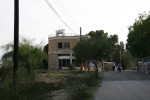
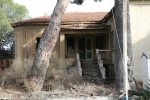 Arguably, this process of loss and displacement has also created new territories of experience, of memory – the liminal zones of unclarity, of ambiguity and chiaroscuro, a shadowy zone of existence, a zone of the virtual. Such zones are also offering media representations a new role, a new potential; if the liminal zones of Famagusta or Jerusalem, of Kashmir or Sarajevo are no longer open to all, are lost to many who lived in them and through them, then this development offers new potentialities for re/presentation, its abilities and its solemn duties are intensified, are dramatically heightened and become irreplaceable. The rhizomatic, invisible links which have made up the place what it once was, have been greatly reduced, no doubt, in each of the conflict situations under discussion here; however, the existence of some of those rhizomes, their resistance of the superficial erasure of history and memory, their persistence of vision, is the basis for the efficacy of representational strategies. Arguably, the potency of media representation is capable or repairing the broken rhizomes, the disconnected nerves of social memory, the deletion of experience by ideology. Such processes are also at work in the postmodern metropolis, where new communities have replaced old ones, new experiences have erased earlier ones, and new forms of violence have replaced old structures of commonality, of communality.
Arguably, this process of loss and displacement has also created new territories of experience, of memory – the liminal zones of unclarity, of ambiguity and chiaroscuro, a shadowy zone of existence, a zone of the virtual. Such zones are also offering media representations a new role, a new potential; if the liminal zones of Famagusta or Jerusalem, of Kashmir or Sarajevo are no longer open to all, are lost to many who lived in them and through them, then this development offers new potentialities for re/presentation, its abilities and its solemn duties are intensified, are dramatically heightened and become irreplaceable. The rhizomatic, invisible links which have made up the place what it once was, have been greatly reduced, no doubt, in each of the conflict situations under discussion here; however, the existence of some of those rhizomes, their resistance of the superficial erasure of history and memory, their persistence of vision, is the basis for the efficacy of representational strategies. Arguably, the potency of media representation is capable or repairing the broken rhizomes, the disconnected nerves of social memory, the deletion of experience by ideology. Such processes are also at work in the postmodern metropolis, where new communities have replaced old ones, new experiences have erased earlier ones, and new forms of violence have replaced old structures of commonality, of communality.
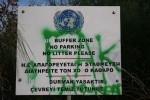
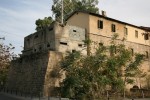
 But for each new erasure, there may be a new potentiality; for each new loss, a rhizomatic raw nerve is still intact, for each act of depraved violence, a new form of solidarity is created. We must try to connect the broken strands of past and future, so as to create a continuity of being, a continuum of human experience.
But for each new erasure, there may be a new potentiality; for each new loss, a rhizomatic raw nerve is still intact, for each act of depraved violence, a new form of solidarity is created. We must try to connect the broken strands of past and future, so as to create a continuity of being, a continuum of human experience.

